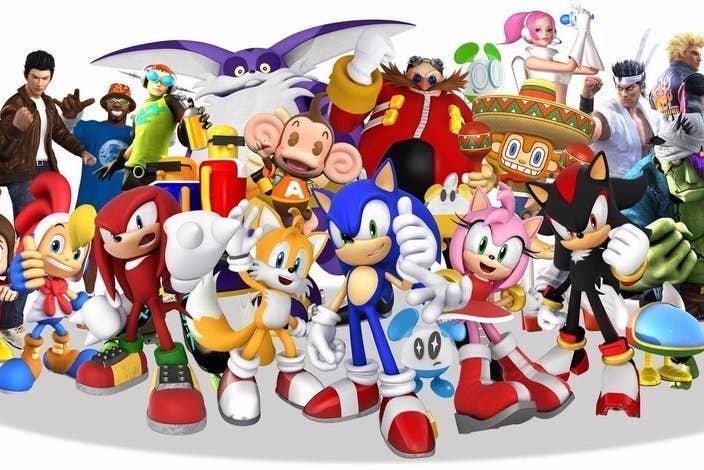Sega returns to profit on cuts and streamlining
But revenue across Sega's games business was flat or in decline as new products failed to excite
A run of job cuts and structural changes helped Sega to improve its profitability in the last fiscal year, but the sales performance of its games business remained a cause for concern.
In the year ended March 31, 2016, Sega's Entertainment Contents business - which covers arcade machines, animated films and toys in addition to games - made an operating profit of ¥3.7 billion ($33.4 million / €30 million), a major improvement over the ¥63 million ($579,000 / €510,000) it earned in the previous fiscal year. However, despite the turnaround, Entertainment Contents' revenue was stagnant, falling by 0.5 per cent to ¥199.7 billion ($1.8 billion / €1.6 billion).
When combined, Sega's Digital and Packaged Games revenue represented half of that ¥199.7 billion total, and the same lack of forward momentum was evident. Digital Games earned ¥53.9 billion ($495 million / €436 million), down 2 per cent year-on-year, while Packaged Games revenue fell by 11 per cent to ¥42.3 billion ($389 million / €342 million).
"The standout packaged game was Football Manager 2016, a relatively niche franchise by most measures, and one that played second fiddle to Alien: Isolation the year before"
In terms of Packaged Games, the downward trend in revenue is reflected in an even steeper decline in unit sales. For the fiscal year ended in Match 2015, Sega sold 12.28 million units of software, but that declined 25 per cent to 9.22 million units last year. The improvement in operating profit, the company said, was down to a reduction in costs due to its smaller portfolio of released titles. The standout game in the last fiscal year was Football Manager 2016, a relatively niche franchise by most measures, and one that played second fiddle to Alien: Isolation the year before.
The slight decline in Digital Games revenue was more problematic, because the actual number of people playing Sega's games increased for both its Domestic titles and those in its Noah Pass cross-promotional network. Domestic games, for example, attracted an average of 7.7 million MAUs in fiscal Q4, up more than 40 per cent year-on-year, and yet the average revenue from each of those users actually declined 15 per cent over the same period. Sega is accruing players to its increasingly important digital titles, but it has yet to monetise them effectively.
Where Sega's Entertainment Contents business has improved over the previous year, then, has more to do with operational and logistical changes than the emergence of compelling new products. The company noted the positive impact of the "structural reform measures" it put in place in the fiscal year ended March 2015 - you can read about that in this article - and yet more cuts were deemed necessary even a year later.
Across the entire company, Sega's revenue for the year slipped 5 per cent to ¥348 billion ($3.2 billion / €2.8 billion). Predictably enough, it still managed to turn last year's ¥11.4 billion loss ($105 million / €92 million) into a ¥5.4 billion profit ($50 million / €44 million).
By the end of the current fiscal year, Sega will be expecting to make a more product-driven impact on its financial health. In addition to a new Football Manager game, it will also launch Persona 5 and Yakuza 6 in both the Japanese and foreign markets, and the eagerly awaited Total War: Warhammer.

